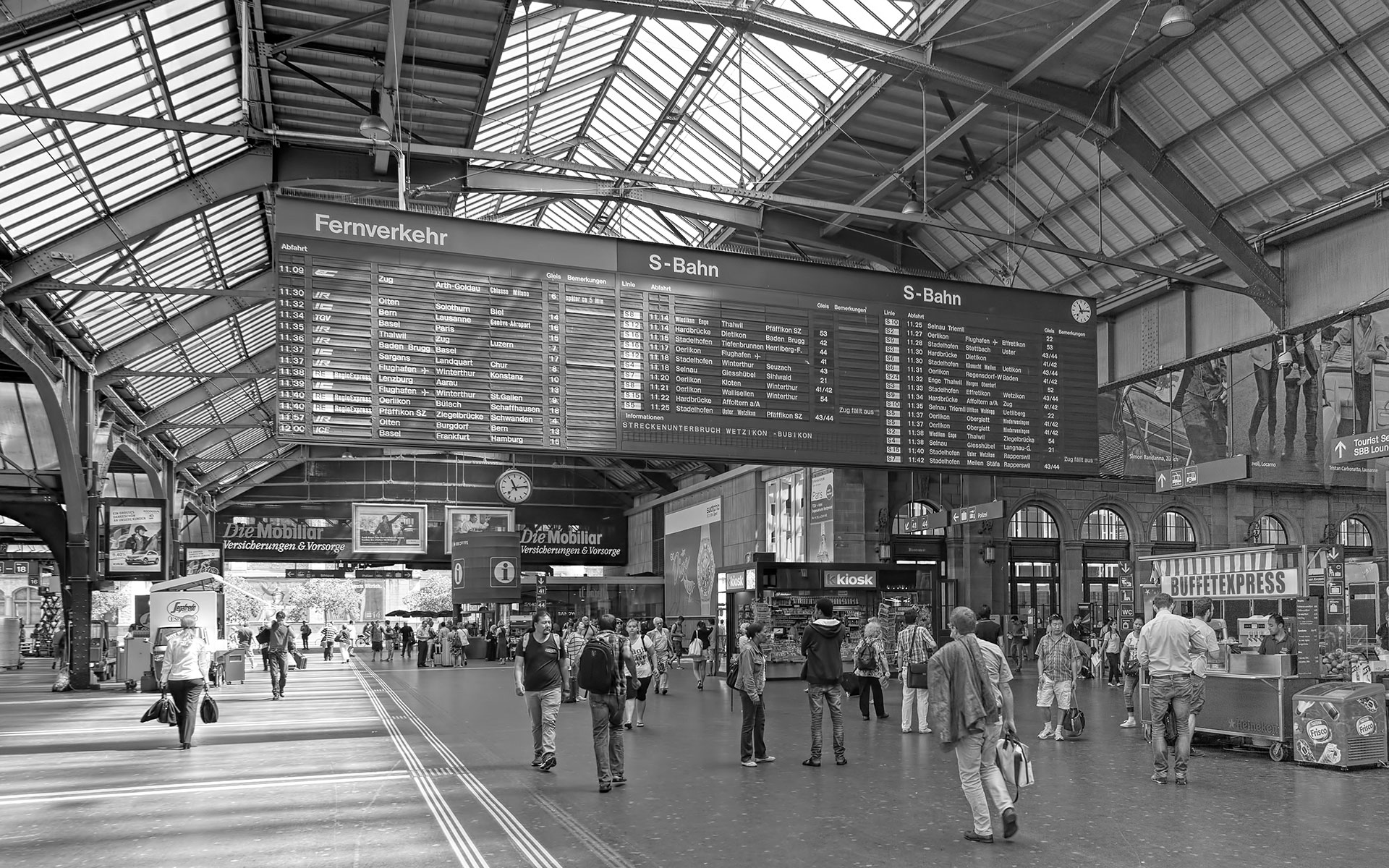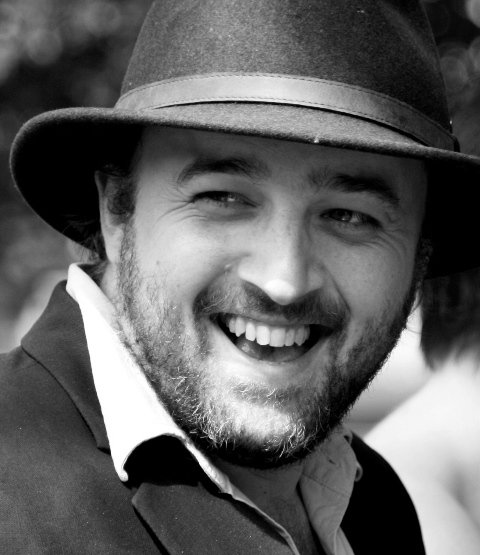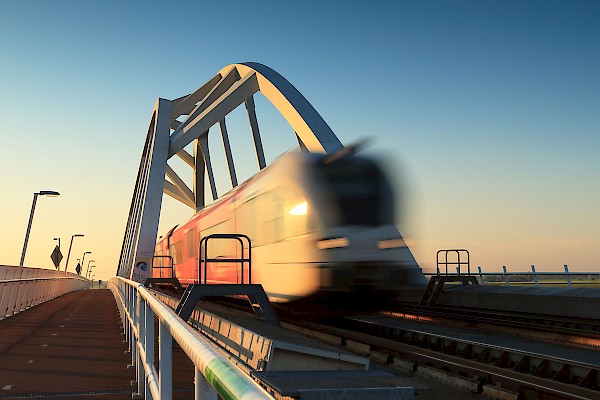The Possibility of the Rails
Zurich HB, the city's main railway station, still has a fine range of destination cities on its departure boards, with direct trains to Zagreb, Budapest, Prague, Paris, Venice, Bratislava, Berlin and many other cities. (photo © Denis Linine / dreamstime.com).
On a hot summer day in 1999, I stood inside the main hall of Zürich Hauptbahnhof and looked at the list of departures for our train, the 09:33 to Prague. It was a journey that would take us all of the day, crossing four international borders as we went. To a child of an island there was something thrilling about this. To be able to catch a train and cross whole countries. To get on board in a city where they spoke one language, and climb down onto the platform in a place where they spoke another. I was twenty years old. I had two friends with me. We had one mobile phone between us and I had just registered for my very first email account. In the top of my rucksack I carried the Thomas Cook European Rail Timetable. We had our Interrail tickets. We were ready to go.
I don’t have my copy of the timetable anymore. If I did, I could check to see which international trains departed from Zürich in the summer of 1999. As well as Prague, I could have caught a train to Rome, to Barcelona, to Brussels. Standing there in the cool, cavernous station building, I was taken back to my childhood Playmobil set, with its foreign-looking trains and a departure board that read Wien and Venedig, München and Belgrad. That summer, I discovered the real-life version of the adventures I’d played out on the living room carpet in West Lancashire, and it was everything I’d hoped it would be.
We’d started in Zürich because back then, in the early years of budget airlines, it was the cheapest place we could get to from northern England on a bright orange plane. That first journey remains strong in the memory. The views of Swiss towns and with the mountains as a backdrop. The shimmering water of Lake Constance and the surprisingly drab suburbs of Munich. We moved through dense forests and had our first encounter with a border guard. We entered Prague in the evening, and stumbled out into a city that felt oh so different to the one we’d left behind only that morning.
We went to many places that summer, but more than anything it is the train journeys that I remember. The second was a night train, from Prague to Budapest. We decided against a bed, choosing to save money by sharing a seated compartment with five older women, laden with shopping bags and luggage that they stuffed into every available space. They ignored us, except to offer a bit of smoked sausage from their elaborate, late-night picnic, but they kept talking among themselves until one by one they fell asleep deep into the witching hour, one of them using my shoulder as a pillow.
I look back to that summer and I think of morning coffee in Trieste as we changed trains, before sharing a compartment with three African nuns as we all made our way to Rome. I think of the small stations we passed through, on our way from Vienna to Ljubljana, all of which – in their names alone – suggested the possibility of adventure and stories yet to be written. And I think of those border guards and the anxiety they induced, just by the clomp of their boots on the carriage corridor floor and the sound of a compartment door suddenly opened.
That summer with those two friends, our Interrail tickets and our increasingly battered copy of the European Rail Timetable, I began to understand how much variety there was in this Europe of ours, and yet how well connected we were thanks to this dense network of railway tracks that criss-crossed the continent. I knew I wanted more. That a month wasn’t enough. From that first evening in Zürich, and then again in Prague and Vienna, Ljubljana and Trieste, Florence and on the shore of Lake Lugano, I saw glimpses of other lives led and wanted some of that for myself. I wanted to live in all those places, and I knew that there was even more out there. It was the start of a process of understanding what Europe was, and what it meant to be European, and even on our return I was sure that I wanted to get to know more of this continent of ours. And it was there waiting for me, written on every page of the timetable. I just needed another ticket and more time to explore it all.
I look back on the summer of 1999 at a moment when our world is restricted by events. I look ahead and wonder if this is to be the first year since long before that Interrail trip that I do not cross an international border. At the same time, I am hopeful that this will eventually pass. That I will stand again in a station hall beneath a cavernous roof and look up at a list of destinations. Rome, Barcelona, Brussels and Prague. Vienna, Venice, Munich and Belgrade. And I’ll think: where next?







About The Author
Paul Scraton
Paul Scraton was born in Lancashire and has lived in Berlin since 2001. A writer with a particular interest in landscape, memory and place, he is the editor-in-chief of Elsewhere: A Journal of Place. He is the author of a number of books including The Idea of a River: Walking out of Berlin (Readux, 2015) and Ghosts on the Shore: Travels along Germany's Baltic coast (Influx, 2017). His debut novel Built on Sand was published by Influx in 2019. Find out more about Paul on his website.